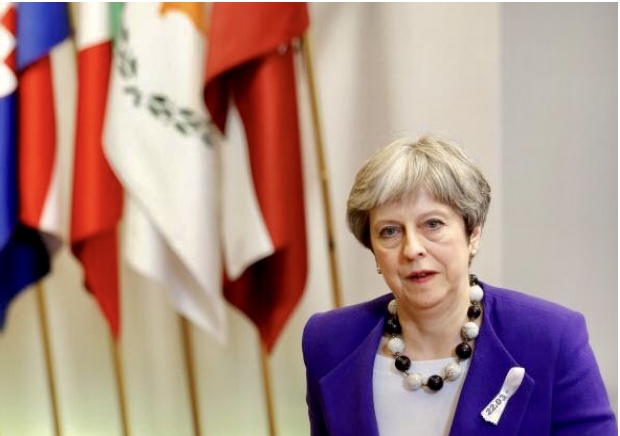
For the EU, Brexit has been an eyesore beyond description.
The tug-of-war between the EU and the UK is of a protracted war. On April 10, the EU member-state leaders met in Brussels, Belgium and reached an agreement to allow the UK to postpone the Brexit until October 31 this year. On June 2, the EU will give the decision another evaluation.
British Prime Minister Teresa May originally only wished to postpone it until June, and French President Macronalso expressed support for it. But EU Council President Tusk and German Chancellor Merkel both stated that the matter could be extended to the end of the year, in fact, even to the year 2020.
So, will there be earth-shattering changes in the UK in the next few months? After all, the British hardliners hope to close the deal as soon as possible, and May herself isprobably having burning eyebrows.I believe that May’s dilemma is far more serious than the negative reaction against her deal with the EU. Deep in her heart, she might not have been convinced of Brexit after all. Be aware that before she was pushed to the prime minister’s position, she was NOT for Brexit. While she shouts out toughly for the sake of Brexit, the soft spot hidden in her heart might be suffering miserably.
Thesensitive topic now is what will happen in the upcoming EU parliamentary elections on May 23. Neitherthe other 27 member states of the European Union nor the United Kingdomiswilling to bump into each otherin embarrassment.It is alleged that some diplomats are having a solution in mind for a quick Brexit: Once the UK does not follow the agreement of the EU member states—in this case, the UK decides not to participate in the EU parliamentary elections—it can be kicked out of the EU.
If this happens, the EUcan implement the no-dealBrexit on June 1, which means trade barriersand more bad newsforthe UK.
Facing the danger of no-deal Brexit on June 1, the British House of Commons bugged May again for a new Brexit schedule after having rejected the Brexit agreement between May and the EU three times in a row. March 29 was the day when the British officially started the Brexit process, but it passed business as usual.
The EU granted the UK a short postponement of Brexit for the first time on March 21. But it also stipulated that the British side must give a new plan before April 12, otherwise it will still face the risk of no-deal Brexit. Now that the EU is delaying the date generously, May can finally breathe a sigh of relief for a while.
Yet this relief is a double-edged sword. Mayhas to considerthe parcitipation ofelection of the European Parliamentnow. In order to avoid the deadline of June 1., she has decided to go for the election. The EU thought that the Brexit should be completed before the election, so it planned to share the UK’s 73 seats to others. 27 members shall have one seat more each. And the other 46 seats shall be reserved for the possible new member states. Now that the UK is coming, this plan has to be cancelled.
After two years of failing to leave the European Union, the British are also very upset. Many regard the parcitipation of the EU election as the foreshadowing of the second referendum. Britain’s traditional big parties, i.e. the Conservative Party and the Labour Party, are currently less popular than the Liberal Democrats and Nigel Farage’s the new Brexit party. For the EU, once the UK participates in the elections in late May, there will be more far-right factions in the EU Parliament.
Brexit seems to be challenging the limits of the British. And May has served as a victim or sacrifice in this battle. She said that once the Brexit succeeds, she will immediately resign. But it’s hard to say if she will not be ousted by her own party before that. What is the true thought of the overwhelmed May? Maybe leaving Downing Street as soon as possible, letting Boris Johnson take the booth and continue the battle?

Be the first to comment on "The Misery of Brexit"